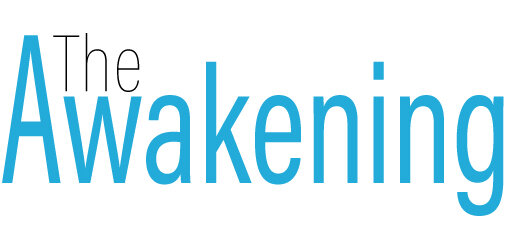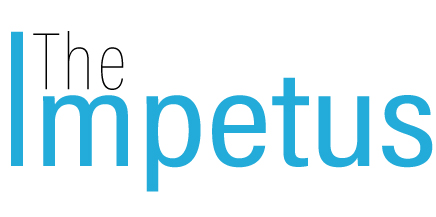
Weight Matters 2020
Don’t dismay, if your goal is to achieve and maintain a healthy weight, we have information that will help you.
“The only reason I am fat is because a tiny body couldn’t store all of this personality. ”
Here’s the Skinny
We thought that this might be an appropriate subject for this week’s The Impetus and next week’s Healthy by Choice class. The most common New Year’s resolutions for 2020 are exercising more (50%), saving money (49%), eating healthier (43%), and losing weight (37%). Although we make resolutions with the best intentions, according to the U.S. News and World Report. about a third of resolutions do not make it past the first month and 80% of resolutions disappear by the second week of February.
Don’t dismay, if your goal is to achieve and maintain a healthy weight, we have information that will help you.
Maintaining a healthy weight is important for well-being. In addition to lowering the risk of heart disease, stroke, diabetes, and high blood pressure, it can also lower the risk of many different cancers and chronic diseases.
The Pandemic
WHO has called obesity a global pandemic with worldwide obesity tripling since 1975 that has global implications for health and disease.
In one of the largest studies ever to examine obesity rates across the globe, researchers found that more than 60% of men, 50% of women and 1/3rd of children are either overweight or obese. They concluded that obesity is a growing problem in all regions of the world, even among traditionally lean Asian populations.
A recent study in The Lancet (April 2016) reported for the first time in human history obese people outnumber underweight people. These statistics were gathered from 200 countries and nearly 20 million people for over 20 years.
The Solution
In order to achieve a goal, it is important to become aware of all the factors that may affect your outcome. When trying to achieve a healthy weight keep in mind that more is involved than just diet and exercise.
Top Factors Affecting Weight:
Heredity- Some people are genetically predisposed to gain weight more easily than others.
Diet- The quantity and quality of food in your diet has a strong impact on weight including food addictions such as sugar.
Physical Inactivity- Weight gain and loss are primarily a formula of total calories consumed versus total calories used.
Dehydration- Inadequate hydration has been shown to slow metabolic processes and increase weight gain.
Sleep Deficiency- People who get too little sleep tend to weigh more than those who get enough sleep. Environmental Factors- Environmental toxins in our bodies have been shown to affect weight.
An effective weight management plan is more than just what we eat and how much we exercise. It requires attention to several self care processes that can affect our weight. Nutrition, sleep, hydration and stress management are all important for achieving and maintaining a healthy weight.
Weight and Water
Are you Hungry or Thirsty?
The same part of your brain is responsible for interpreting both hunger and thirst signals which can often result in mixed messages. Many times, we eat high caloric foods when we are actually thirsty. "Mild dehydration is often masked as feelings of hunger, when really your body just needs fluids," says Alissa Rumsey, RD, spokesperson for the American Academy of Nutrition and Dietetics. The confusion happens in the hypothalamus, the part of the brain that regulates both appetite and thirst.
A 2016 study from the University of Illinois at Urbana-Champaign examined the dietary habits of more than 18,300 U.S. adults and found that the majority of people who increased their consumption of plain water by one percent reduced their total daily calorie intake as well as their consumption of saturated fat, sugar, sodium and cholesterol.
Sleep and Weight
Research indicates that there is a link between how much people sleep and how much they weigh. In general, children and adults who get too little sleep tend to weigh more than those who get enough sleep. Studies have shown that sleep deficiency promotes hunger and increased appetites. Poor or insufficient sleep increases levels of a hunger hormone called ghrelin and decreases levels of the satiety/fullness hormone called leptin, which can lead to overeating and weight gain.
Sugar is Everywhere
There are over 600,000 food items in the U.S. and 80% of them contain added sugars. Sometimes in foods that we wouldn’t suspect as having added sugars.
One of the main problems is excess sugar consumption. To put this into context, the average daily consumption of sugar by Americans in 1822 was 9 grams a day. It is currently 153 grams a day per individual. This is a 17-fold increase in less than 200 years. We change very slowly biologically, yet we have drastically altered what we are eating and the amount of sugar we are consuming.
America isn’t the only country that loves sugar and excess sugar consumption has become a global issue.
Sugar is highly addictive. The first self care defense is to check food labels and monitor your daily sugar intake. The American Heart Association and many other international health agencies recommend 6 teaspoons or 25 grams and 9 teaspoons or 36 grams daily as a daily sugar intake. The best way to break the sugar addiction is by consuming protein. Protein Shakes are ideal for this and a great way to start your day.
Your Environment and Weight
I think we can all agree we live in a toxic world. Each of us have 200 or more environmental toxins in our bodies and many have been shown to affect weight. Including exposure to environmental chemicals with endocrine-disrupting activities, heavy metals, solvents, pesticides, organophosphates, and phthalates. BPA has been linked with numerous disturbing health issues like obesity and diabetes, cancer and behavioral disorders. In addition, PCB, PBBs, and many other substances have been documented to cause weight gain.
The Good News
Other than heredity, the factors that affect our weight are ones in which we all have choices. The solutions are straight forward and can be accomplished by first becoming aware of the problem and then making simple healthy choices. This will be the context of our next Healthy by Choice class and how the Nikken Wellness Home products and technologies provide simple, effective and affordable solutions, so anyone can Be Healthy by Choice. Join us for an informative broadcast Tuesday, February 4th at 9pm Eastern, 6pm Pacific. at www.theroyalalliance.com/live .
Be Healthy by Choice
The Beginning of Discovery
For those of you that have been following Self Care and our subject matter, you might ask as I did, what is there to be skeptical about?
Skeptical or Cynical?
Following a recent event where I was speaking, I was approached by a woman who said she really enjoyed the Self Care Awakening talk I had given. I thanked her and asked if she had questions about the information presented. She responded with, the information was very good, but that she was a very skeptical person. For those of you that have been following Self Care and our subject matter, you might ask as I did, what is there to be skeptical about? Thankfully the teacher in me surfaced and I really wanted to know if she was skeptical or cynical. I have no issue with skepticism as it is a very important part of the discovery process. It’s easy to confuse being a skeptic with being a cynic The word skeptic is derived from the Greek skeptikos, meaning “to inquire” or “look around.”, which is a good thing. I do take issue with a cynic, who distrusts anything that is contrary to their belief. The first thing I had to ascertain before continuing the conversation was if I was talking to skeptical or cynical individual. As the conversation continued it became apparent that she was skeptical and looking for more information to help her process the Self Care Awakening. We talked about each of the subjects that I had just presented.
Water Matters
I asked our guest if she was skeptical about being well hydrated and if drinking enough water each day to counter balance our daily loss of water (about 10 cups) was a good idea. I referred her to “Down the Hatch”
Sleep Matters
Was she skeptical that sleep matters and we need 7.5 to 9 hours sleep a night to avoid sleep debt? That lack of quality sleep can adversely effect our health and that sleep is our most important part of our day. Referencing What Sweet Dreams are Made of…
Weight Matters
Might it be a good idea to have some measure of how much sugar we are consuming daily? And that it might be a good idea to limit that consumption to a healthy level. Self Care Defense 101: Hidden Sugar
Environmental Toxicity and Pollution in People
Was she skeptical that we live in a toxic world and that accumulation of these toxic chemicals could influence our health? Might it be a good idea to filter our air, drinking water, bathing water and take steps through good sleep, proper hydration and limiting processed foods to lower our internal pollution, our Body Burden. The Body Burden
These may sound like simple steps to be Healthy by Choice, but sometimes the simplest ideas have the greatest skepticism. Welcome the skeptic and provide the information so they can take the next step to be Healthy by Choice. None of us can afford to be cynical enough to leave our Health to Chance.
author: Gary Lindner, Ph.D.






